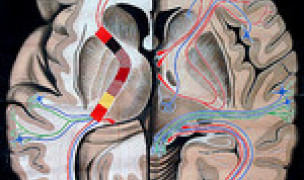 20 Términos
20 TérminosInicio > Términos > Macedonio (MK) > хиперинфлација
хиперинфлација
Very, very bad. Although people debate when, precisely, very rapid inflation turns into ¬hyper-inflation (a 100% or more increase in prices a year, perhaps?) nobody questions that it wreaks huge economic damage. After the first world war, German prices at one point were rising at a rate of 23,000% a year before the country’s economic system collapsed, creating a political opportunity grasped by the Nazis. In former Yugoslavia in 1993, prices rose by around 20% a day. Typically, hyper-inflation quickly leads to a complete loss of confidence in a country’s currency, and causes people to search for other forms of money that are a better store of value. These may include physical assets, gold and foreign currency. Hyper-inflation might be easier to live with if it was stable, as people could plan on the basis that prices would rise at a fast but predictable rate. However, there are no examples of stable hyper-inflation, precisely because it occurs only when there is a crisis of confidence across the economy, with all the behavioral unpredictability this implies.
- Parte del discurso: sustantivo
- Sinónimo(s)
- Blosario
- Industria/ámbito: Economía
- Categoría: Economía
- Company: The Economist
- Producto:
- Acrónimo-Abreviatura:
Otros idiomas:
Comentarios de otros usuarios
Términos en las noticias
Temas relacionados
свеќа
A light source typified by a wick embedded in solid fuel, usually fax or fat, and used in Christianity to symbolize the Light of Jesus Christ.
Contribuidor
Glosarios destacados
Browers Terms By Category
- Bailes de salón(285)
- Danza del vientre(108)
- Porristas(101)
- Coreografía(79)
- Danza histórica(53)
- Afro-americana(50)
Danza(760) Terms
- Queso(628)
- Mantequilla(185)
- Helado(118)
- Yogur(45)
- Leche(26)
- Productos de nata(11)
Productos lácteos(1013) Terms
- Lenguaje corporal(129)
- Comunicaciones corporativas(66)
- Comunicación oral(29)
- Escritura técnica(13)
- Comunicación postal(8)
- Comunicación escrita(6)
Comunicación(251) Terms
- Herramientas de mano(59)
- Herramientas de jardín(45)
- Herramientas generales(10)
- Herramientas de construcción(2)
- Pincel de pintura(1)
Herramientas(117) Terms
- Química orgánica(2762)
- Toxicología(1415)
- Química general(1367)
- Química inorgánica(1014)
- Química atmosférica(558)
- Química analítica(530)





